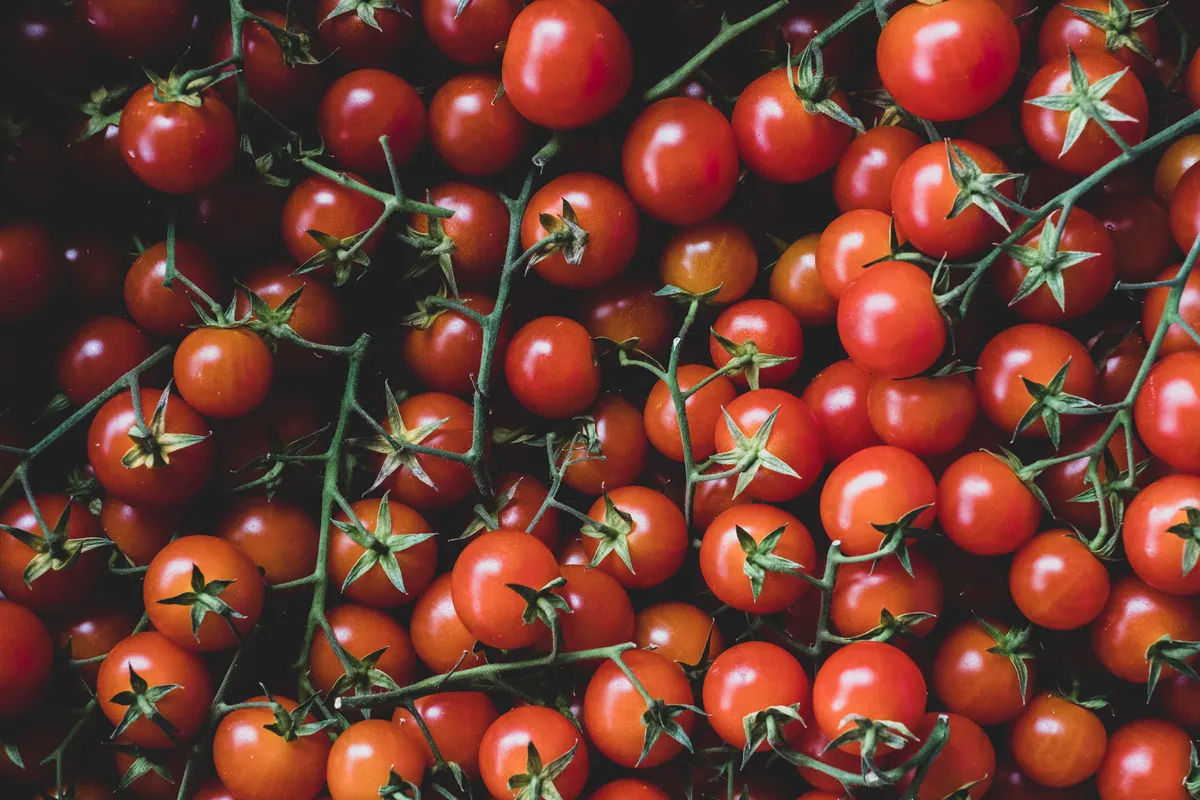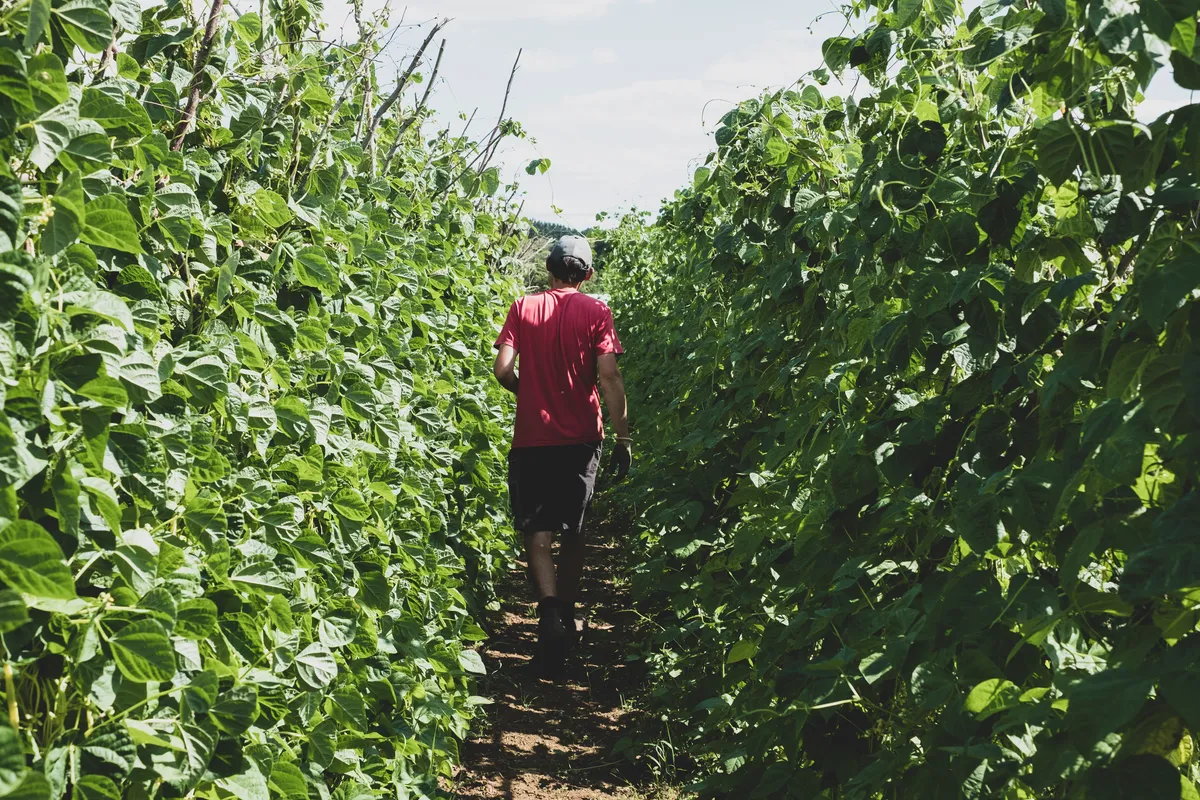A quick fridge search of most advocates of seasonal eating reveals a huge amount of either hypocrisy or ignorance. Do we really think you can grow broccoli in the UK in January or green beans in March, or have we just conveniently suspended our critical faculties? I include myself and many Riverford veg box customers in that category.
To blame my step-daughter’s resistance to cabbage for the cucumber and pepper in my fridge is not entirely fair; by March I am longing for the peas, beans, lettuce and occasional asparagus that we import from growers in Spain to keep those hypocrites happy. Although it must be said that our UK-only veg box is selling better than it ever has (though still less than 5 per cent) so perhaps there is some narrowing of the reality gap.
In a world that was serious about climate catastrophe growing under heated glass would be illegal.

So, is the solution to put up more glasshouses or polytunnels and grow tomatoes in the UK? Without heat, even under glass, tomatoes grown commercially in the UK are sown in February for planting out in April and picking from July to October in a good year. If they limp on into November, under falling sunlight, the flavour is very poor. With heat they can be planted in January for cropping from April to November but this consumes a prodigious amount of fuel.
Consider that we are legally obliged to double glaze new homes when windows normally account for less than 10 per cent of the surface; yet a glass house will be heated to a similar temperature (20C) in January with 100 per cent of the surface single glazed. It is so bonkers that a tomato or pepper trucked 1500 miles from southern Spain or Italy will typically still have a carbon foot print ten times smaller than one grown under heated glass in the UK. Heating glass to produce out of season tomatoes in the UK is as bonkers as flying runner beans from Kenya. Riverford sells nothing from heated glass (nor anything that has been on an airplane). In a world that was serious about climate catastrophe both would be illegal.
No one died for lack of a tomato

So how do we eat the plant-based diet almost everyone is advising, while leaving a habitable planet for our children? No amount of advice from me is going to get us there unless it is enjoyable. Guilt or good intentions change little for 95 per cent of us. While 99.9 per cent of us will not revert to eating turnip, I am convinced that, for veg at least (fruit is more challenging), with the right nudges and policies we could eat an 80 per cent UK diet without suffering (or using heated glass).
There are so many wonderful, but neglected vegetables, if we could wean ourselves off tomatoes, cucumber, peppers and broccoli even for a few months. The radicchio / escarole family can provide great salads (for those not needing everything to be sweet) right through the winter as can corn salad, winter purslane and a host of oriental greens. Celeriac can replace celery, purple sprouting replace broccoli. Better storage could see UK grown onions, carrots and potatoes kept in good condition right through to the start of the new season.
Easing of planning control on polytunnels. Better provision of training and support for new entrants would all help boost supply. Personally I do not support flying in an underclass of labourers to support the poor employment practices of many of our large growers; far better that the industry restructured towards smaller businesses more reliant on local labour.
What we do import should never be flown
What we do import should never be flown; in terms of CO2 emissions per kg of veg, planes are over 30 times worse than ships; trains about double and trucks about 10 times. In an ideal world what we do import would come by ship from Morocco or southern Spain, which takes three or four days; only a little longer than by truck.
Though the tomato shortage of 2023 was certainly exasperated by self-inflicted Brexit related trade barriers that make the UK a customer of last resort for growers in mainland Europe, the fundamental issue was unseasonably cold weather in Andalucía and Morocco. Every grower I speak to now mentions changing weather patterns as their major challenge; the closer you get to the equator the more acute it becomes.

Our crops and variety choices, planting dates, cultivation strategy and pest control practices have all evolved based on what has worked in the past; that accumulated wisdom, often built over generations, is rapidly being devalued by changing weather patterns; heatwaves, late frosts, torrential rain and gales. They add unpredictability and risk that growers are seldom built into a grower’s budget. We should expect more shortages and higher prices.
But really, is this worth the fuss? We are the lucky ones; no one died for lack of a tomato, we just have to be a bit less picky for a few weeks.